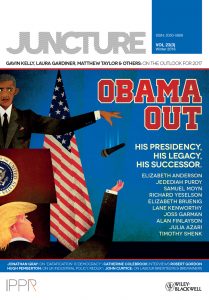Joe the Plumber and Good Ol' American Reductionism
[youtube=http://www.youtube.com/watch?v=U67Eg-3jP5k]
by PThrelfall
Joe the Plumber, the Johnny-come-late hero of the failing McCain-Palin presidential campaign, was a call to Americans to identify themselves, and hence the candidates, using a perspective that assumes that we are what we do. Moreover, the subliminal message was that we are who we associate with. In this sense, the campaign was attempting to build their social capital with a particular segment of middle American voters.
Theories of social capital include arduous debates on issues of definition, value, and measurement. If, as Putnam argues, it serves as a mechanism that engenders cultural norms that facilitate individual benefit through collective action, then social capital should be a measured at the community level. If, as Bourdieu argues, it serves as a mechanism that facilitates individual benefits through cultural values that exist at the class level, then it should be measured at the individual level. However, Lin argues that social capital is best measured in the socioeconomic locations of those within one’s network. In this sense, the American tradition of reductionism is alive and well in sociological theory.
Discourses in social capital have garnered contributions from a variety of disciplines in recent history, but it can be argued that the analysis is futile without the sociological imagination. It is from this perspective that Lisa Adkins argues that there is no room for such over-simplification in sociology. If we are to develop a measurement of social capital that accounts for the intersectionality of public and private life, we must move beyond the cultural need to reduce individual agency to a purely socioeconomic definition.
The failure of Joe the Plumber’s presence to translate into an electoral win illustrates that Americans may not be willing to drink the reductionist kool-aid anymore.
Lisa Adkins calls for a sociological social capital





